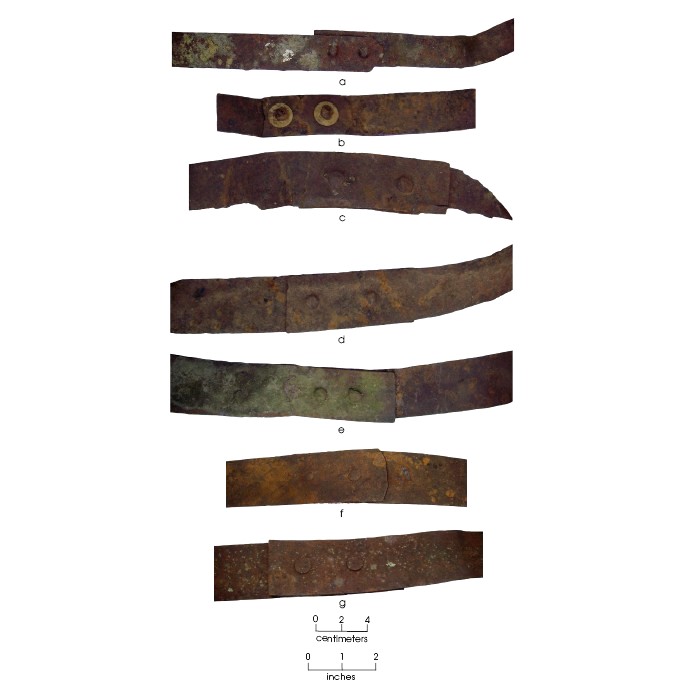
One of the most important resources on any farm was water, and the upland setting of the Williams farmstead meant that there was no permanent stream or spring on the property. Williams had dug a small livestock pond to catch rainfall during wet periods, but it may have been dry during many parts of the year. We found no evidence for a cistern or well having been dug on the property, and it is likely that water had to be brought to the farm from nearby Bear Creek using a wagon to haul wooden barrels.
Wooden barrels, casks, or kegs are held together by a series of different sized hoops or bands that were placed in different positions to hold the wooden barrel staves in place. Large barrels with capacities of 20 to 50 gallons would have had at least three and typically five or more hoops per barrel. Some 40 iron barrel hoops and hoop fragments were found at the Williams farmstead, and we calculate that these represent at least 6 to 8 different large wooden barrels. This image shows the diverse sizes of the bands and the different types of connecting rivets. At least one specimen (b) is clearly a repair job where new brass washers and iron rivets were used to fix a broken hoop.